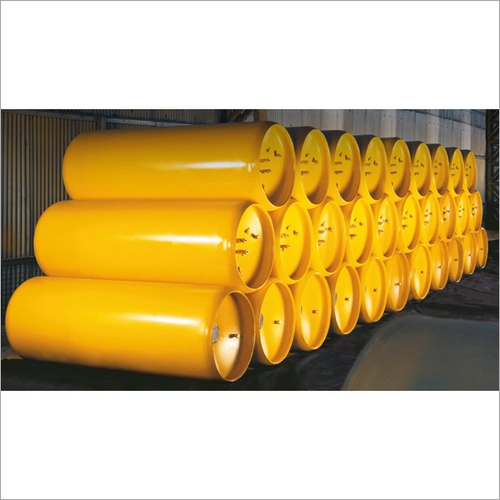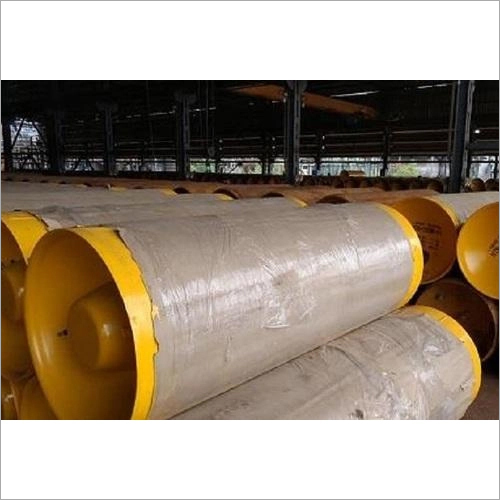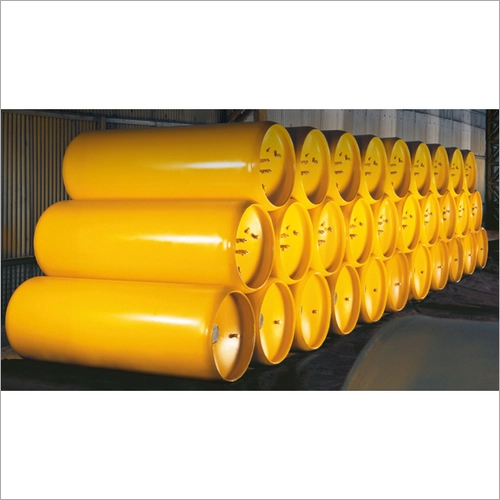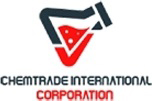


Liquid Chlorine Gas
Product Details:
- Purity 99.8%
- CAS No 7782-50-5
- Melting Point -100.98 deg C , 3.214 g/l (@ 0 deg C, 1 atm)
- Density 1.468 g/l @ 0 deg C, 3.65 atm (Liquid) Gram per litre (g/L)
- Click to View more
X
Liquid Chlorine Gas Price and Quantity
- 20 Ton
Liquid Chlorine Gas Specifications
- -100.98 deg C , 3.214 g/l (@ 0 deg C, 1 atm)
- 1.468 g/l @ 0 deg C, 3.65 atm (Liquid) Gram per litre (g/L)
- 7782-50-5
- 99.8%
Liquid Chlorine Gas Trade Information
- 7 Days
- 900 Kg
Product Description
Our enterprise is actively engaged in offering Liquid Chlorine Gas, that can be utilized to disinfect water and is part of the sanitation process for sewage and industrial waste. In addition to this, we provide this product in various packaging options as per the requirements of our clients and at affordable prices. Our offered chemical is also utilized in cleaning products, including household bleach which is chlorine dissolved in water.
Liquid Chlorine Gas Properties:
1. Physical State and Appearance: Liquid chlorine is a dense, pale yellow-green liquid with a distinctive odor. It is highly reactive and is used in various industrial and chemical processes.
2. Boiling Point: The boiling point of liquid chlorine is -34.04 degrees Celsius (-29.27 degrees Fahrenheit) at standard atmospheric pressure (1 atmosphere or 101.3 kPa).
3. Melting Point: Liquid chlorine does not have a clear melting point since it exists as a gas at room temperature and pressure. It transitions directly from a solid to a gas upon heating.
4. Density: The density of liquid chlorine varies with temperature and pressure. At its boiling point (-34.04 degree centigrade), the density is approximately 1.562 grams per cubic centimeter (g/cm3). However, this density can change significantly with changes in temperature and pressure.
5. Solubility: Liquid chlorine is sparingly soluble in water. It reacts with water to form hydrochloric acid (HCl) and hypochlorous acid (HOCl). The solubility of chlorine in water increases with decreasing temperature.
6. Reactivity: Chlorine is a highly reactive element, readily forming compounds with other elements and molecules. It is a strong oxidizing agent and can react explosively with certain materials, particularly under certain conditions.
7. Toxicity and Hazards: Chlorine gas and liquid chlorine are toxic and can pose serious health hazards if inhaled, ingested, or come into contact with the skin or eyes. Proper safety measures and protective equipment are essential when handling or working with liquid chlorine.
8. Uses: Liquid chlorine is commonly used in various industrial applications, including water treatment, disinfection, bleaching processes (such as in the paper and textile industries), and the production of various chemicals.
9. Transport and Storage: Due to its hazardous nature, the transport and storage of liquid chlorine are subject to strict safety regulations. It is often transported in pressurized containers, and proper handling and storage procedures must be followed to prevent accidents and leaks.
Uses of Liquid Chlorine Gas:
1. Water Treatment and Disinfection: Liquid chlorine is widely used for water treatment and disinfection in municipal water supply systems, swimming pools, and wastewater treatment plants. It effectively kills bacteria, viruses, and other pathogens, helping to ensure safe and clean water for drinking and recreational purposes.
2. Bleaching Processes: Liquid chlorine is used in the textile, paper, and pulp industries for bleaching processes. It is effective in removing color from fabrics and paper products, making them suitable for various applications.
3. Chemical Manufacturing: Liquid chlorine is a key raw material in the production of various chemicals, including hydrochloric acid (HCl), polyvinyl chloride (PVC), and chlorinated solvents.
4. Disinfection of Industrial Equipment: Liquid chlorine is used for disinfecting and sanitizing industrial equipment, such as tanks, pipelines, and processing machinery, to maintain hygienic conditions and prevent microbial contamination.
5. Swimming Pool Maintenance: In addition to its use in municipal swimming pools, liquid chlorine is also used by private pool owners to maintain water quality by killing algae and harmful microorganisms.
6. Wastewater Treatment: Liquid chlorine can be used in wastewater treatment facilities to disinfect effluent before it is discharged into the environment.
7. Chemical Synthesis: Chlorine gas is used as a reactant in various chemical synthesis processes to produce a wide range of compounds, including pharmaceuticals, agrochemicals, and specialty chemicals.
8. Food and Beverage Industry: Liquid chlorine can be used for disinfection and sanitization purposes in the food and beverage industry, such as in the cleaning of equipment and surfaces.
9. Medical Applications: Chlorine gas has historical medical uses as a disinfectant and antiseptic, though its use in medical settings has significantly diminished due to safety concerns.
10. Lab Research and Analysis: Chlorine gas can be used in laboratory settings for chemical reactions, oxidation processes, and analytical techniques.
FAQ:
Q1: What is liquid chlorine gas?
A1: Liquid chlorine gas is chlorine in its condensed form, appearing as a pale yellow-green liquid. Chlorine is normally a gas at room temperature and standard atmospheric pressure, but it can be cooled and pressurized to convert it into a liquid state.
Q2: What is liquid chlorine gas used for?
A2: Liquid chlorine gas is primarily used as a disinfectant, bleaching agent, and oxidizing agent in various industrial processes. It's commonly used for water treatment, bleaching textiles and paper, chemical manufacturing, and disinfection of surfaces and equipment.
Q3: Is liquid chlorine gas safe to handle?
A3: Liquid chlorine gas is toxic and can be hazardous to handle. It can cause respiratory and skin irritation, and exposure to high concentrations can lead to more severe health effects. Proper safety precautions, protective equipment, and training are essential when working with liquid chlorine gas.
Q4: How is liquid chlorine gas transported and stored?
A4: Liquid chlorine gas is typically transported in pressurized containers, often steel cylinders or tank trucks. Storage and transport are subject to strict regulations due to the hazardous nature of the substance. Containers must be kept away from heat and direct sunlight.
Q5: What are the risks of exposure to liquid chlorine gas?
A5: Exposure to liquid chlorine gas can lead to respiratory irritation, coughing, difficulty breathing, and in severe cases, pulmonary edema or chemical burns. Direct contact with the liquid or its vapors can cause skin and eye irritation or burns.
Q6: Can liquid chlorine gas be used in drinking water treatment?
A6: Yes, liquid chlorine gas is commonly used for disinfecting drinking water to kill bacteria, viruses, and other pathogens. It helps ensure that the water supply is safe for consumption.
Q7: Are there alternatives to liquid chlorine gas for disinfection?
A7: Yes, there are alternatives such as sodium hypochlorite (liquid bleach) and chloramines. These alternatives are often safer to handle while still providing effective disinfection.
Q8: Can liquid chlorine gas explode?
A8: While liquid chlorine gas itself doesn't explode, it can react violently with certain substances, releasing heat and potentially causing fire or explosions. It's crucial to avoid contact with incompatible materials, such as flammable substances and reducing agents.
Q9: How is liquid chlorine gas regulated?
A9: Liquid chlorine gas is regulated by various government agencies, including environmental protection and occupational safety agencies, to ensure safe handling, transport, and storage. Regulations cover labeling, storage conditions, transportation guidelines, and emergency response protocols.
Q10: Can liquid chlorine gas be used at home?
A10: Liquid chlorine gas is not suitable for home use due to its toxic and hazardous nature. Household bleach (sodium hypochlorite) is a safer alternative for disinfection purposes.
Enter Buying Requirement Details
 |
Chemtrade International Corporation
All Rights Reserved.(Terms of Use) Developed and Managed by Infocom Network Private Limited. |

 English
English Spanish
Spanish French
French German
German Italian
Italian Chinese (Simplified)
Chinese (Simplified) Japanese
Japanese Korean
Korean Arabic
Arabic Portuguese
Portuguese
